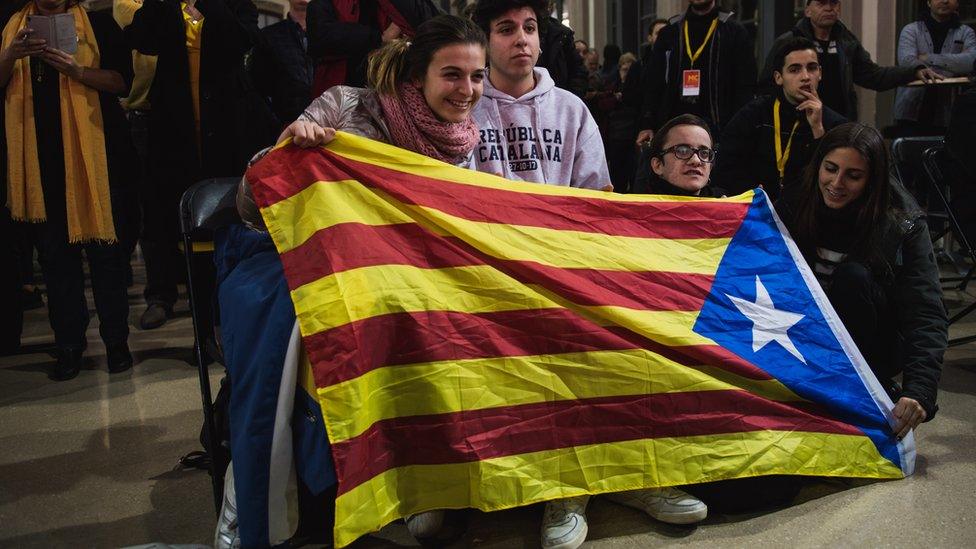Catalonia crisis: The longest week
- Published
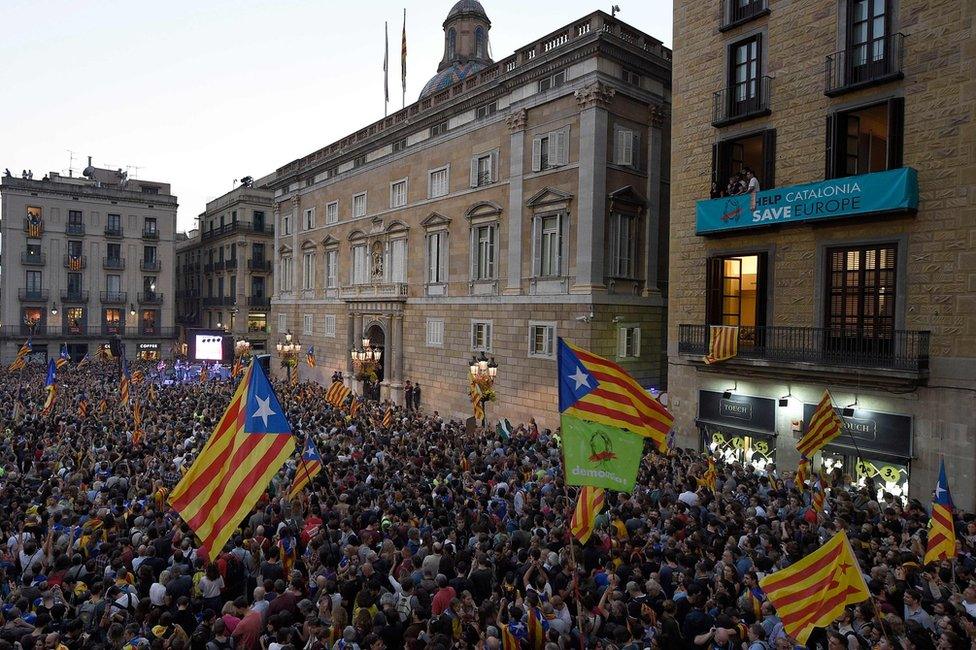
Independence was a cherished dream for many which seemed to come true on 27 October
The Spanish region of Catalonia has just lived through the most momentous seven days in its recent history, which began with a proclamation of independence from Spain and ended with its leaders in jail, on bail or in exile.
Nobody could have foreseen how the baby steps of the self-declared "Catalan Republic" might turn out, but even its most implacable foes in Madrid might have been surprised at how quickly it tripped up.
Friday 27 October
Separatists in the regional parliament vote to declare a republic, based on the outcome of an illegal referendum at the start of the month. They call for Spain to hand over legal powers. Supporters outside greet the result with a huge cheer, while jubilant separatists in towns like Girona remove Spanish flags from public buildings. Later in the day, the Spanish Senate strikes back, giving the green light for the government to impose direct rule on the region, using emergency powers.
The moment Catalan parliament declared independence
At times there were tensions between opposing groups of protesters
No alternative to direct rule - Rajoy
Saturday 28 October
Spanish Prime Minister Mariano Rajoy dissolves the Catalan parliament, calls snap regional elections for 21 December and sacks Catalan President Carles Puigdemont and his cabinet. The Spanish national flag can be seen flying from private windows and balconies in Madrid in a display of Spanish patriotism not seen in decades.
Mariano Rajoy said fresh elections would be held
Flags in Catalonia and what they mean
Sunday 29 October
Hundreds of thousands of people attend a rally for Spanish unity in the Catalan capital, Barcelona, many of them calling for Mr Puigdemont to be jailed. Spanish Interior Minister Juan Ignacio Zoido asks in an open letter for the 17,000-strong Catalan regional police force to accept temporary direction from Madrid.
Barcelona rally demonstrator: "I feel forgotten by the Catalan government"
Monday 30 October
Spain's chief prosecutor announces he is seeking charges of rebellion - punishable by up to 30 years in prison - sedition and misuse of public funds against Mr Puigdemont and 13 other members of his sacked cabinet. Mr Puigdemont and five of his ministers slip out of Spain, reportedly by road, driving to the French city of Marseille where they take a plane to Brussels, the heart of the EU but also capital of Belgium, which theoretically could grant them political asylum down the line.
Back in Catalonia, several separatist parties indicate they will take part in the 21 December election, despite it being called by Madrid. Civil servants return to work, dampening expectations in some quarters that they might make some gesture of civil disobedience against Spanish direct rule.
Whatever you do, don't look down: Children scramble up human towers in Catalonia
Tuesday 31 October
Carles Puigdemont tells the world's media in Brussels that he is not trying to escape justice but wants to be able to speak freely. Insisting he remains the legitimate president of Catalonia, he relaunches his website, external as that of the "president-in-exile".
Catalan leader Carles Puigdemont on why he is in Brussels
Carles Puigdemont: Spain has a "democratic deficit"
People expressed mixed views on Mr Puigdemont's actions
Wednesday 1 November
Time off from the politics to toast chestnuts as Catalonia marks the All Saints Day public holiday along with the rest of Spain.
Allow X content?
This article contains content provided by X. We ask for your permission before anything is loaded, as they may be using cookies and other technologies. You may want to read X’s cookie policy, external and privacy policy, external before accepting. To view this content choose ‘accept and continue’.
Thursday 2 November
Nine of Mr Puigdemont's former ministers, who did not leave with him, attend the high court in Madrid and are promptly remanded in custody. They include sacked Vice-President Oriol Junqueras and foreign affairs chief Raül Romeva. Prosecutors ask for European Arrest Warrants to be issued for Mr Puigdemont himself and four others in Belgium. Back in Catalonia, shocked supporters gather for vigils to demand the release of their leaders.
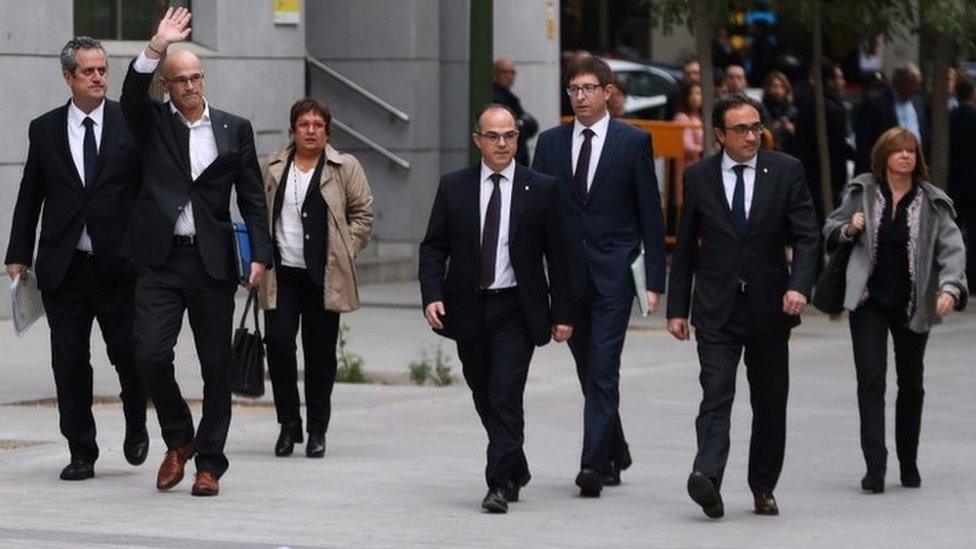
Seven of the eight ex-ministers were pictured turning up to court in Madrid together
In Barcelona's central square, the crowd sings Freedom for Catalonia
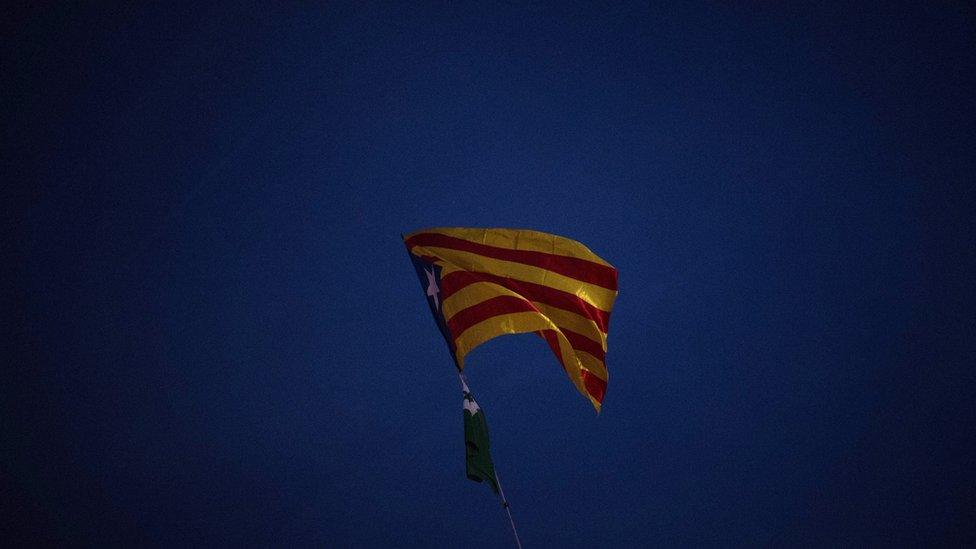
A Catalan independence flag waves during a vigil in Barcelona
- Published26 March 2018
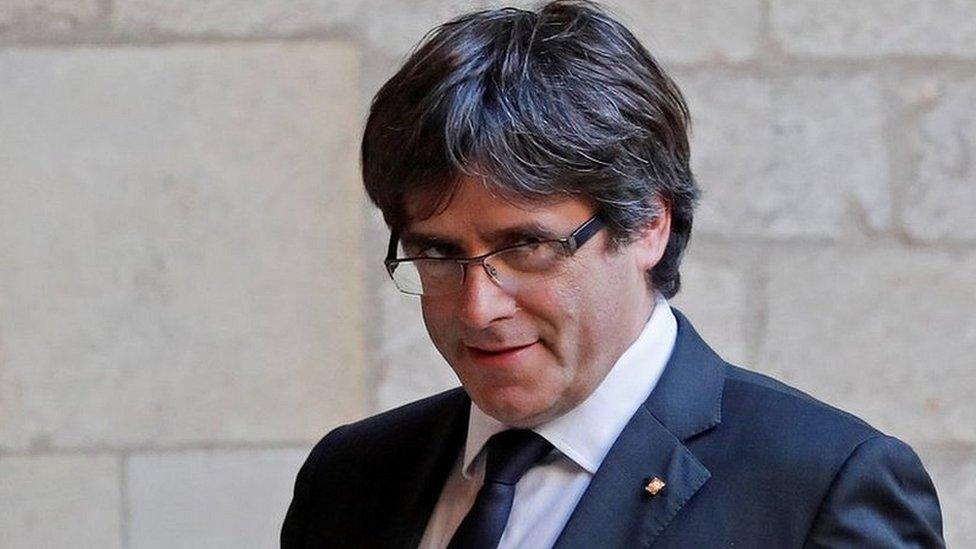
- Published2 November 2017
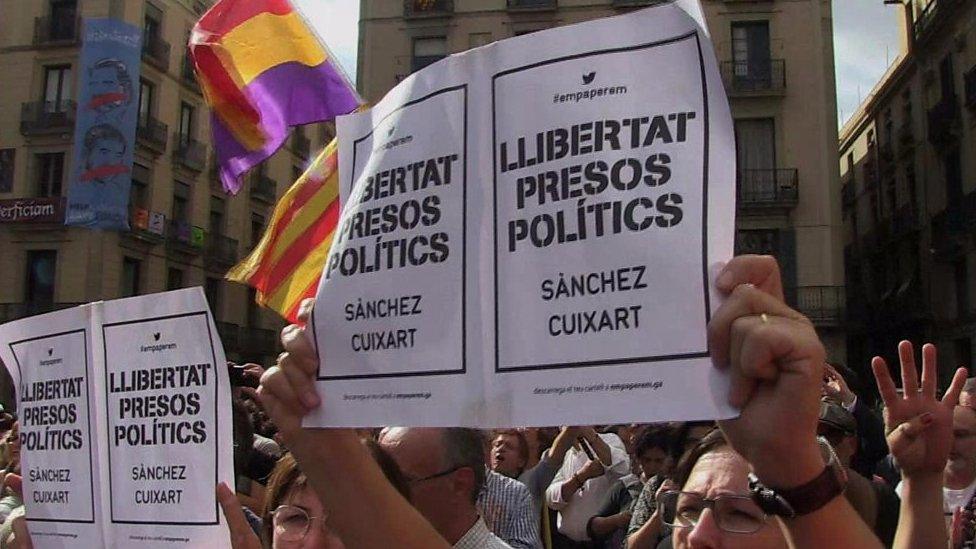
- Published2 November 2017
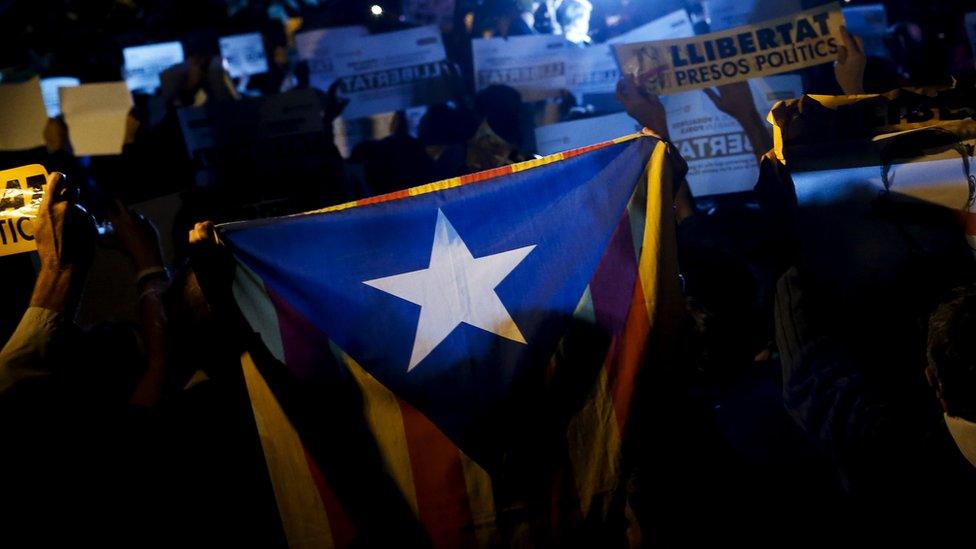
- Published2 November 2017
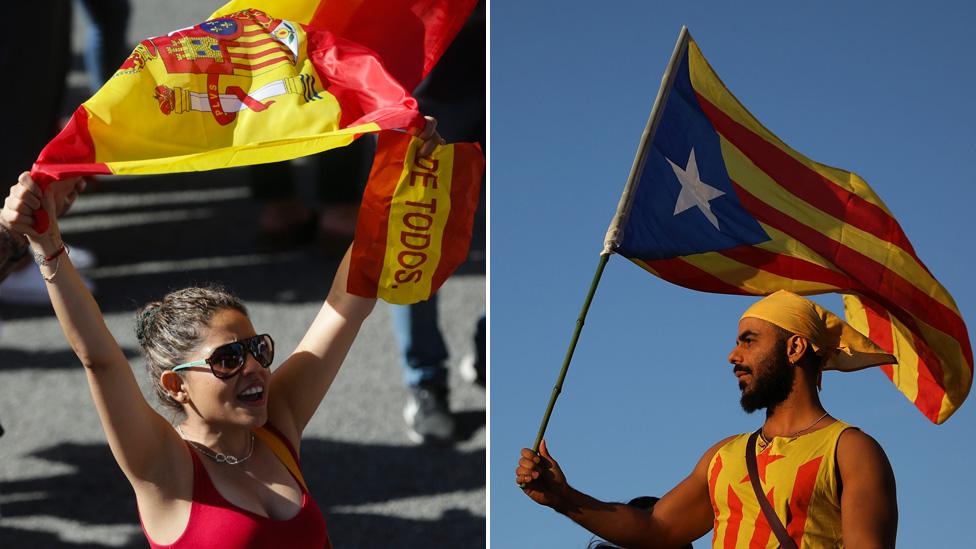
- Published14 October 2019
